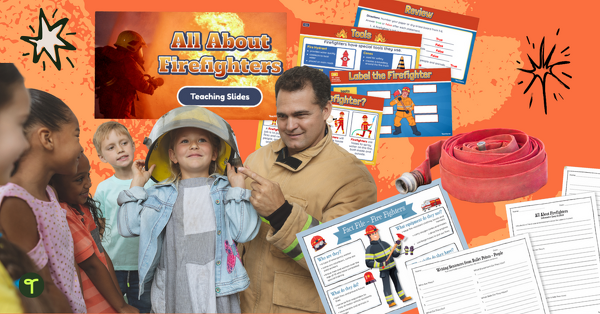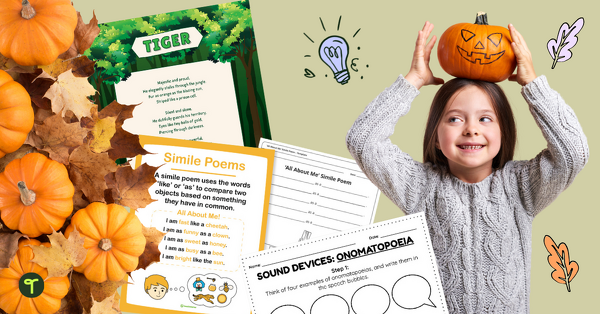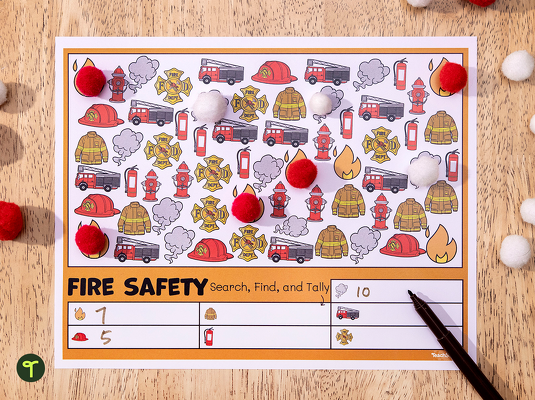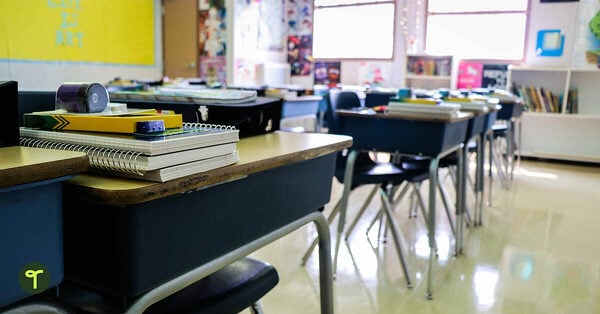Building a good parent-teacher relationship can be challenging — even for veteran teachers who have had a lot of practice. So whether you’re a first year teacher or it’s your 20th year, you might be looking for some fresh ways to improve your relationship with parents … and theirs with you!
Are you wondering how to build a good parent-teacher relationship? Or maybe you’re pondering how to maintain good parent-teacher communication throughout the school year?
Our teacher team has got your back! We’ve looked at the research, and we have a host of tips to help you start the school year strong and end it strong too, including strategies every teacher needs to try.
Why Are Parent Teacher Relationships So Important?
As a teacher you’re probably saying, well of course, the parent-teacher relationship is important, but maybe you need a few benefits to include in your next email home to inspire a little more help from home?
We’ll let the National Center for Family and Community Connections with Schools take it from here. Regardless of family income or background, they’ve found that students whose parents are involved are more likely to:
- Achieve higher grades and test scores
- Attend school regularly
- Have better social skills
- Show improved behavior
- Adapt well to school
Stacy Hohertz, a teacher who works with parent-teacher communication app ClassTag, puts it this way: “Parents are the number one advocate for their children. They are our partners in successfully educating their children.”
Check out our teacher team’s favorite parent-teacher communication resources now!
Even though there’s no dearth of research showing that involved parents are crucial for a child’s educational success, parental involvement has been declining in recent years. Data from non-profit Learning Heroes has been showing a decline in parents helping with homework, attending parent-teacher conferences, and communication with teachers outside of conferences since 2016.
Can you reverse that in your classroom? Let’s look at the research and some solid parent-teacher communication strategies to make it happen.
How Can Teachers Partner Effectively With Parents?
When you’re looking to establish good parent-teacher communication, one of the most important things is to remember that just about every parent wants to help their kids, and that’s where you come in!
“When teachers communicate with parents how their children are doing in class and the areas they need help improving, parents will jump on it,” Hohertz advises. “They just need to know where to start.”
It likely won’t surprise you to hear that most teachers don’t have a lot of time to contact parents, and parents don’t have a lot of time to contact teachers.
According to stats from the National Center for Education Statistics, the biggest barrier to parental involvement — at least on the side of the school — was lack of time on the part of school staff to devote to nurturing that relationship with parents. And a nationally representative Parent and Family Involvement in Education Survey conducted by the NCES found that only 42 percent of parents — fewer than half out of some 14,000 parents surveyed — had received a phone call from the school about their child during the 2015-2016 school year. The number was slightly better when it came to email — 62 percent of parents had gotten an individualized email about their child.
We know you’re busy with state mandates, testing, and more, so how do you cut through it all to build that solid relationship with the parents of all your students?
Parent-Teacher Communication Strategies We Love
Here are some strategies that can help you create the ideal parent-teacher relationship!
Accommodate Working Parents (Whenever Possible)
This can be a tough ask, as the many parents of your students will likely have different working schedules. But even something as simple as making parents aware of activities that will occur during the school day well in advance so they might be able to plan for time off from their employers can go a long way in building a stronger parent-teacher relationship. Working parents often want to be more involved in their children’s education, but finding out about that gingerbread building event one or two days prior makes it impossible for them to do so!
Communicate With Parents Often
There’s really no such thing as over-communicating when it comes to parents and their child’s education. Hohertz has started sending out a weekly update that explains what her students are doing in class. “This gives parents an idea of what we are working on each day,” she explains.
Share a Calendar
Give parents the ability to look ahead at what’s going on — whether it’s when you’ll be studying particular units throughout the year or when your class has gym or library so parents can plan ahead to pack those library books or make sure their students are wearing sneakers. You can do this monthly or weekly — whatever works best for you.
Reach out about the little things before they become big things. “Many teachers just brush off the small infractions and only call home for the big ones,” Hohertz says. “If they call about the small ones, the likelihood of reaching a big one decreases.”
You don’t have to make this a big to-do — a message in a system like ClassTag or an email will usually suffice.
Share Success Stories
“When students do amazing things in your classroom, share them!” Hohertz recommends. “Parents love seeing what their kids are doing well. Highlight the positive as much as possible.”
Calling home when there’s trouble is part of the job, but there’s a lot more fulfillment in being able to communicate with parents when their kids have a success story, not to mention it can help build a good relationship when parents aren’t always hearing negative things from you. These Positive Parent Notes are a great way to send home positive stories about a student’s day!
Outline Homework Clearly
What is your homework plan for this school year? Sharing this information at the start of the year, and providing parents with a clear homework information sheet not only lets them know early what’s going on but gives them something to refer back to when necessary.
Print an editable homework information sheet now!
Start on a Positive Note
With that in mind, remember that even when there’s something troubling going on, parents need to hear that you’re on their child’s side.
“Even if a teacher needs to call a parent about a student acting up or having a failing grade, they should always begin the conversation by saying something positive about that child,” Hohertz advises. “It sets the tone of the conversation, which is so important.”
Communicate About the Entire Class as Well as Individual Students.
Providing as much information about what is happening in class builds parents’ confidence in you and makes sure they feel included in their child’s education. It also helps to contextualize your experience, acting as a reminder of the fact that you care for a large number of children in addition to the child of that particular parent or caregiver.
A class Twitter or Instagram account can be a great way to share information easily — although you may want to blur students’ faces or ensure everyone has gotten sign-off to have their photos used.
Be Mindful of Different Families
It is helpful to think about this kind of communication from each parent or caregiver’s perspective. The school-home communication strategy that you set up needs to work for them!
Do you have parents who cannot read written English or speak a language other than English? Do all of your families have regular access to a reliable internet connection or a smartphone with data? Are there students in the class who have a complex home or family situation that means they cannot be included in any whole-class or publically accessible communication?
Taking the time to ensure that ALL families will be able to maintain a form of communication with you is important, even if it does mean that what you set up for the majority of the class needs to be slightly modified for some.
Provide Your Best Methods of Communication from the Get-Go
Give parents the best ways to reach you and the best times too — if they know you’re more of an email person, for example, that is helpful to know. And if you tend to check your email in the morning, well, that’s perfect for a parent to know. The more transparent you are about how you can be reached, the more comfortable parents will feel reaching out.
Provide Parents With Ideas
Many parents find that asking their kids “what did you do at school today?” is like talking to a CIA agent. When kids simply say “nothing,” is it any wonder the parent isn’t seeing the value of your amazing instruction?
Give parents ideas for asking good questions that will crack open their kids’ inner chatterbox, and they’ll catch on to the excitement their kids really have about spending the day in your classroom!
Ask Parents for Help
Being a teacher can be a tough job; there’s no question. But you don’t have to go it alone.
“No one knows their child better than they do,” Hohertz reminds colleagues. “Asking for their help shows that a teacher cares and is willing to do what is necessary to help their child.”
You may need an in-class helper, or maybe you’re just looking for parents to donate old books their kids no longer read, or wondering if one of the parents has craft supplies lying around that are going unused. “Help” can be whatever you define it as, and the parents on the receiving end of the request may end up feeling more involved in their child’s education as a result, opening a whole new aspect of your teacher-parent relationship.
Show Parents Your Appreciation
“I always end phone calls with parents the same way,” Hohertz says. “ I thank them for taking the time to talk to me. Yes, it is their student, but acknowledging that they are in the middle of their busy day of work goes a long way toward building a solid relationship.”
Get an editable meet-the-teacher template, parent-teacher conference templates, and more must-have classroom communication tools now!
Banner image via shutterstock/hedgehog94










Comments